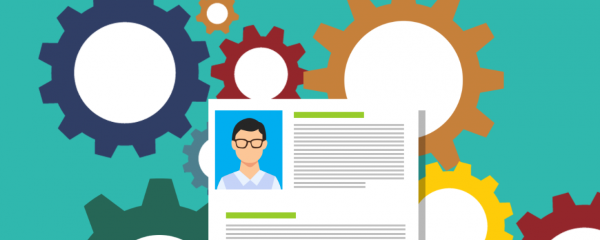Search posts by keywords:
Filter posts by author:
Related NEAT Reports
Other blog posts
posted on Mar 07, 2018 by Elizabeth Rennie

NelsonHall’s most recent Next Generation Payroll Services market analysis reveals that payroll service buyers are focused on access to transformation-enabling technology. The use of automation has become commonplace, with payroll vendors leveraging RPA, AI, and machine learning capabilities to eliminate manual effort in the payroll process. And payroll service providers are investing heavily in automation capabilities that will not only increase efficiencies and reduce operating costs, but also position them to compete against their peers for clients seeking ‘next generation’ payroll and HR innovation.
Recently I had a briefing with CloudPay (identified as a leader in our 2017 Next Generation Payroll Services NEAT evaluation) to see how they are approaching automation in payroll services.
CloudPay’s automation roadmap
CloudPay currently processes over one million pay slips annually (nearly $4bn in payments) across 120+ countries and in ~10 currencies, and has invested heavily in enabling technologies. In addition to its foundation platform which is entirely cloud-based, enabled with dynamic connections to essential applications, and predictive analytic capability, CloudPay is focused on incorporating automation throughout its service offering.
CloudPay’s automation roadmap is supported by ongoing investments of ~15% of its annual revenues. Its progress began well over a year ago, and is focused first on RPA to address two historically troublesome and highly manual processes that are critical to accurate payroll results: data movement, and data validation. Ultimately, CloudPay is targeting ~40% process automation over the long term, enabled by its standardized global process.
Automated data movement through dynamic integration
Historically, when payroll files are submitted to the vendor or payroll team for processing, any issue within a file (be it one data point or a hundred data points) required manual effort to first detect the issue and then perform rework to produce a new file containing corrected data; the process was then repeated until clean files are received and processed without issue.
CloudPay has developed its Connect 2.0 integration, which eliminates the need to constantly reproduce data files to correct errors, and the need to manually validate them, shifting its approach from a file-based process to a record-based process.
Connect 2.0 (which began rolling out in 2017) is an API and database for moving payroll data in and out of CloudPay’s platform from external systems; it includes asynchronous synching, which allows data updates from HR systems and sends data to CloudPay as it becomes available, instead of pending scheduled syncs. It allows clients to choose how they want to integrate (e.g. XML, API, XLS, SFTP, etc.) and can handle all formats in one protocol.
Data that is synced to CloudPay is automatically validated before coming into the payroll processing lifecycle (preventing bad data transmission); if bad data is detected, Connect 2.0 will isolate it in real-time and provide instant feedback (leveraging chatbots) to the client HRIS on how to fix it. While a client’s team is fixing the error, CloudPay Connect will continue to accept correct data.
Automated data validation
CloudPay has automated its payroll data validation process, another traditionally manual, yet critical process to ensure that payroll output is accurate and within control limits based on policy and internal audit guidelines. CloudPay is leveraging RPA to automatically validate payroll data before, and results after, processing.
Examples of automated validation include validating that pay code results match configuration, and that results are as expected. It makes sure that complete data is in place for each employee to allow for processing of payroll results, and conducts pay period-over-period comparisons to prevent over or under payments, etc. All exceptions are flagged for review and correction (rather than manually auditing).
The program provides for a framework that can be customized at the individual payroll level (e.g. each entity or country) meaning its clients can customize thresholds to align tolerance levels to meet corporate policy, business nuances, and ensure control and compliance to prevent invalid payments.
Looking forward
Over the next year, CloudPay will continue with its automation roadmap in the following ways:
- Rolling out updates to Connect 2.0 with capability to support XML file formats, and enabling XLS and Workday PICOF formats, in April 2018. Workday PECI formats will be enabled by the end of 2018, and by year-end, all clients will be live on Connect 2.0
- CloudPay has already begun implementing the RPA-led validation process and is rolling the program out across its client base in a phased approach, with all clients expected to be live by May 2018
- Next on the roadmap (and in-flight) is the incorporation of mini bots to automate basic tasks and transactions and AI-driven virtual assistance to provide users with a simplified, wizard-style, guided experience within its platform.
CloudPay is actively measuring pre- and post-automation roll out results and KPIs across its operations and clients. Stay tuned for an update later this year, as I plan to check in on CloudPay’s progress and results of its automation initiatives, and also to discuss its latest payroll innovation and progress in the global payroll space.
NelsonHall continues to assess the impact of intelligent technologies on the HR outsourcing space, engaging with leading vendors across all towers of HR services (e.g. benefits, payroll, recruiting, etc.) to understand the latest innovations that are transforming the way providers are delivering their solutions and services, and what buyers seek when selecting vendors. Later this year, NelsonHall will publish a major global market analysis focused on RPA in HR services.
